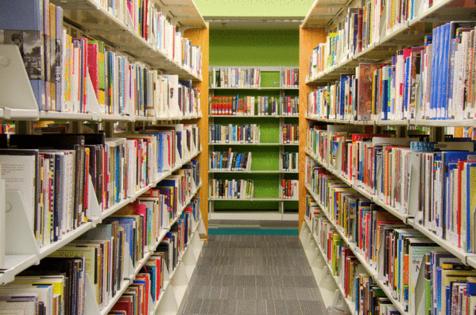Commentary: South Carolina just banned seven books in public schools. This one could be next
Published in News & Features
A few months after a vague new rule allowed the state to remove books with descriptions of sexual conduct from its public schools regardless of grade level, the South Carolina Board of Education has banned its first seven.
The board decided unanimously Tuesday — without being required to read them — that the books Elana K. Arnold’s “Damsel,” Colleen Hoover’s “Ugly Love,” Sally Rooney’s “Normal People” and four popular fantasy novels by Sarah J. Maas are too dangerous for teenagers that the state licenses to drive.
No one had lodged a new complaint about any of these books. Rather, the chair of the Board of Education’s Instructional Materials Review Committee had asked state officials for a list of books that could be challenged or considered controversial.
Three of 11 works the committee reviewed won’t be banned. They are classics: George Orwell’s “1984,” Harper Lee’s “To Kill A Mockingbird” and William Shakespeare’s “Romeo and Juliet.”
Among the books the committee considered, only one’s fate was postponed to a later date: “Crank” by Ellen Hopkins is a 2004 YA novel based on her daughter about a teenager addicted to crystal meth. It is required reading in some high schools and the 38th most banned book of the 2010s.
The staff of the Department of Education had recommended the board ban “Crank” from K-12 school libraries and classrooms, but the board’s panel chose to delay a final recommendation on it, after the committee chair, family doctor Christian Hanley, said he had received an email before the meeting from someone saying that the book had helped their family deal with drug use.
Turns out that “Crank” is actually something parents should encourage their children to read.
Foes may say the book glorifies and glamorizes drug use and sex. In fact, it does the opposite.
One oft-cited passage of the narrator’s stream of consciousness reads, “Off came my shorts. Down went his zipper. I realized I was in serious trouble. ‘I’ll scream.’ Go ahead. No one can hear but skunks and coyotes. Still, as I opened my mouth, his hand slapped down on it. Those sublime muscles hardened. Just relax. You’ll love it. My brand-new Victoria’s Secrets shredded, and I felt the worst of Brendan pause, savoring my terror. They all love it.”
Hopkins responded to those banning her book in 2022, writing, “There’s nothing pornographic about it. Pornography is meant to titillate, and if that scene turns you on, you’ve got a problem. It’s painful. You want the character to be okay, to make it through, to please stop using. The vast majority of readers never want to find themselves there.”
In her own essay last year, Washington, D.C., children’s librarian Aryssa Damron called “Crank” “a lesson in why you should never do drugs” that young people need to read. She wrote that Hopkins identified the book’s message as “choices you make as young adults will affect you for the rest of your life.” She also noted poignantly that many of the first teenagers who took that message from “Crank” have kids of their own now.
The book is barely more suggestive than this:
How fair and how pleasant art thou, O love, for delights!
This thy stature is like to a palm tree, and thy breasts to clusters of grapes.
I said, I will go up to the palm tree, I will take hold of the boughs thereof: now also thy breasts shall be as clusters of the vine, and the smell of thy nose like apples;
And the roof of thy mouth like the best wine for my beloved, that goeth down sweetly, causing the lips of those that are asleep to speak.
I am my beloved’s, and his desire is toward me.
That’s Song of Solomon 7:6-10 from the King James Version of the Bible, and it’s about as sexually depictive as “Crank.”
The bottom line is books like “Crank” are neither pornography nor material that should be kept from high schoolers who could benefit from it. The state puts teens at risk by taking away a space where they could safely learn about the perils of drugs and priorities like consent.
High schoolers need help and often don’t know how to ask for it. Books, then, can be boons. Also, every parent knows it’s hard to get teens to read anything other than TikTok, and everyone should realize that a book rightly kept from elementary schoolers may be OK for teenagers who can drive or even vote. We should be encouraging older teens to read the books so many of their peers have read. And we should be leery of K-12 book bans and arbitrarily deciding classics are OK on one side but new YA books are not on the other.
I’d like my high schooler to have the choice to read a book or not, and talk to me about it. If parents disagree or don’t think their kids are ready for a particular book, they could ask a school librarian to keep it from them. They could also talk to their kids about it, too.
____
Matthew T. Hall has been the South Carolina opinion editor since April 2024 and a journalist for 30 years.
©2024 The State. Visit at thestate.com. Distributed by Tribune Content Agency, LLC.







Comments